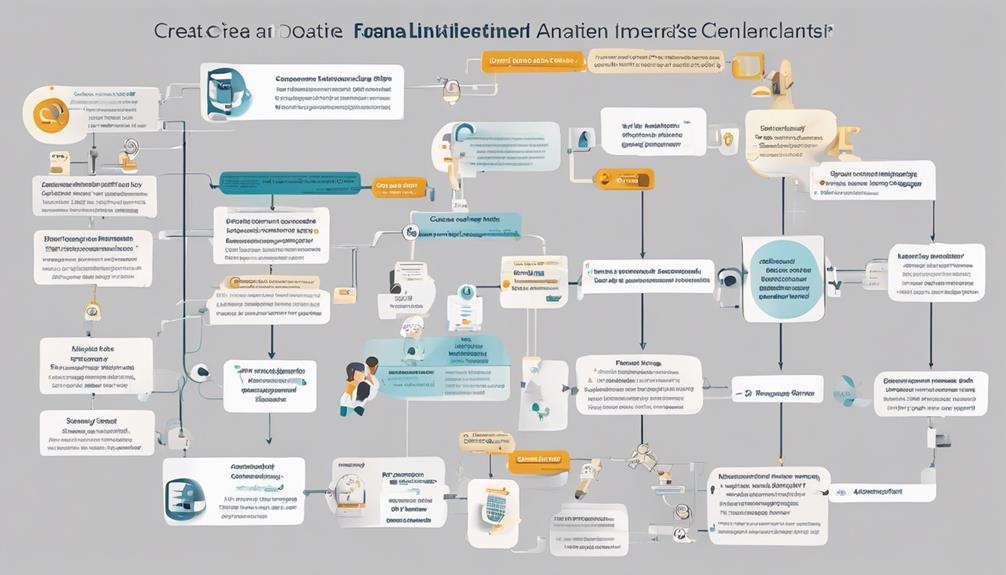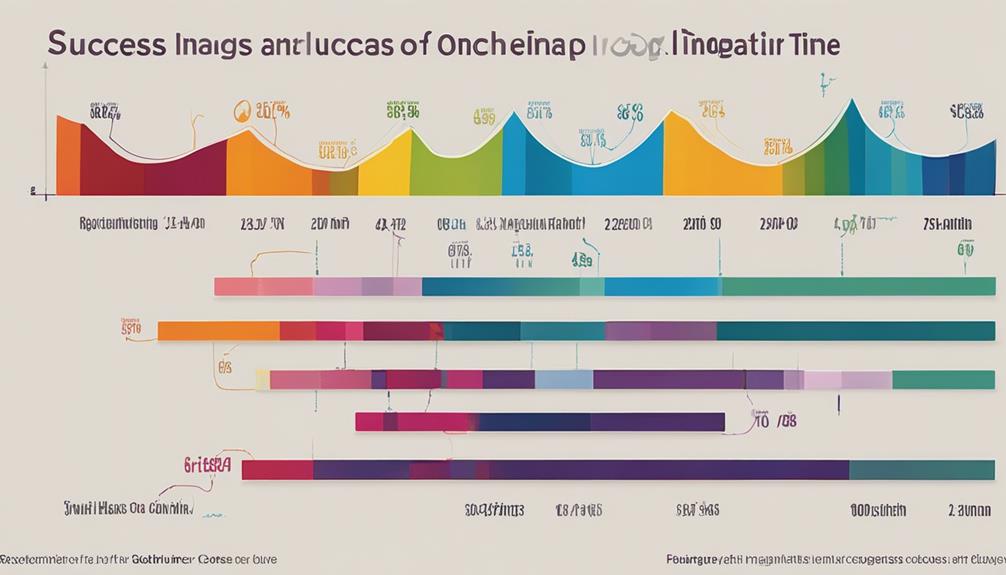When considering Medicare’s payment method for cochlear implants, it’s common to first consider the complexities of the reimbursement process. However, understanding the detailed instructions can shed light on this important subject.
By learning about the eligibility requirements, criteria set by Medicare, and the overall reimbursement process, individuals can navigate the system more effectively.
Stay tuned as we unravel the intricacies of Medicare coverage for cochlear implants and provide valuable insights on maximizing benefits and reducing out-of-pocket expenses.
Key Takeaways
- Medicare covers 80% of approved cochlear implant costs.
- Beneficiaries pay 20% and potential deductibles.
- Consider Medicare Advantage for enhanced coverage.
- Proper documentation and guidance optimize Medicare benefits.
Eligibility for Medicare Coverage
Medicare covers cochlear implants for individuals with bilateral moderate-to-profound sensorineural hearing impairment, provided they demonstrate limited benefit from hearing aids and show a willingness for rehabilitation. Eligibility for Medicare coverage of cochlear implants involves meeting specific criteria. Candidates must have cognitive abilities to participate in post-implant rehabilitation successfully. Additionally, individuals should be free from certain medical conditions to qualify for coverage.
Medicare outlines that candidates must comply with FDA-approved labeling for the cochlear implant device. The severity of the hearing impairment plays a crucial role in determining the need for a cochlear implant. Meeting these eligibility requirements ensures that individuals with significant hearing impairments can access this beneficial technology through Medicare.
It's essential to understand and fulfill these criteria to maximize the chances of receiving coverage for cochlear implants, aiding in improving the quality of life for those with severe hearing impairments.
Medicare Criteria for Cochlear Implants

Individuals seeking Medicare coverage for cochlear implants must demonstrate a limited benefit from hearing aids and a commitment to rehabilitation, meeting specific eligibility criteria outlined by the program. To qualify for Medicare coverage of cochlear implants, candidates must have bilateral sensorineural hearing loss and show a limited benefit from the use of hearing aids. Additionally, candidates must be willing to undergo rehabilitation post-implantation. Compliance with FDA-approved labeling for cochlear implant devices is mandatory to meet Medicare criteria. Candidates must also possess the cognitive ability to interpret auditory cues and not have any surgical contraindications. The recent national coverage determination stipulates that individuals seeking Medicare coverage for cochlear implants must score at or below 60% on tests measuring sentence cognition. This criterion ensures that Medicare resources are allocated to those who stand to benefit the most from cochlear implantation.
| Medicare Criteria for Cochlear Implants | |
|---|---|
| Diagnosis | Bilateral sensorineural hearing loss |
| Requirement | Limited benefit from hearing aids |
| Cognitive Ability | Must demonstrate sentence cognition at or below 60% |
Understanding Reimbursement Process
Navigating the reimbursement process for cochlear implants involves understanding Medicare guidelines and cost-sharing responsibilities. When it comes to Medicare coverage for cochlear implants, beneficiaries should be aware of the following key points:
- Medicare Coverage: Medicare typically covers 80% of the Medicare-approved cost for cochlear implants under Part B.
- Beneficiary Responsibility: Beneficiaries are responsible for the remaining 20% of the approved cost, along with any deductible requirements.
- Medigap Plans: Some Medigap plans may cover the 20% coinsurance and deductible costs for cochlear implants, providing financial assistance to beneficiaries.
- Medicare Advantage: Medicare Advantage plans may offer coverage for cochlear implants, including post-implantation care and follow-up services, offering additional benefits beyond traditional Medicare coverage.
Understanding these aspects of Medicare reimbursement is essential for beneficiaries to navigate the payment process for cochlear implant procedures successfully.
Steps to Access Medicare Benefits

Transitioning from understanding the reimbursement process for cochlear implants, our focus now shifts to the specific steps required to access Medicare benefits for these life-changing devices. To access Medicare coverage for cochlear implants, individuals with severe hearing loss must meet specific eligibility criteria. Once eligibility is established, patients can expect cost-sharing, which typically includes 20% of the Medicare-approved device cost and may involve a deductible. Additionally, Medicare Advantage plans can offer extra benefits such as follow-up care and rehabilitation coverage, enhancing the overall support for beneficiaries. Understanding the coverage criteria and options under Medicare is crucial for individuals seeking to access benefits for cochlear implants. To provide a clear overview, we have outlined the steps to access Medicare benefits in the table below:
| Steps to Access Medicare Benefits |
|---|
| 1. Meet eligibility criteria for severe hearing loss |
| 2. Understand cost-sharing, including potential deductibles |
| 3. Explore Medicare Advantage plans for additional benefits |
Tips for Maximizing Coverage
To enhance coverage for cochlear implants under Medicare, it's essential to strategically utilize available options and resources. When aiming to maximize coverage for cochlear implants, consider the following tips:
- Ensure Proper Documentation: Thoroughly document the medical necessity of cochlear implants and ensure compliance with Medicare coverage criteria.
- Explore Additional Coverage: Enroll in a Medicare Advantage plan to access enhanced coverage for follow-up care and rehabilitation services.
- Consider Medigap Plans: Investigate Medigap plans to potentially reduce out-of-pocket costs associated with cochlear implantation under Medicare.
- Stay Informed: Keep abreast of any changes in Medicare coverage criteria for cochlear implants to optimize benefits and ensure access to necessary services.
Seeking guidance from healthcare providers and insurance experts can also be invaluable in navigating the complexities of obtaining Medicare coverage for cochlear implants. By following these tips, individuals can make informed decisions to maximize their coverage and access essential services.
Frequently Asked Questions
Are There Any Additional Costs Associated With Maintaining a Cochlear Implant After Medicare Coverage Kicks In?
Once Medicare covers a cochlear implant, there can be additional costs for maintaining it. These costs may include replacement parts, repairs, and ongoing check-ups. It's essential to budget for these expenses to ensure the device functions optimally.
Regular maintenance is crucial for the longevity and effectiveness of the implant, so staying up to date with these costs is vital for continued hearing health.
Can Medicare Cover the Cost of Upgrades or Replacements for Existing Cochlear Implants?
When it comes to upgrades or replacements for existing cochlear implants, Medicare may cover the cost under certain circumstances. However, eligibility criteria and specific coverage details can vary.
It's important to consult with healthcare providers and insurance representatives to understand the options available. Keeping abreast of any policy changes is prudent, ensuring we make informed decisions regarding our healthcare needs.
How Long Does It Typically Take for Medicare to Process a Claim for Cochlear Implant Surgery?
Typically, Medicare processes claims for cochlear implant surgery within a reasonable timeframe. Our experience shows that the process usually takes a few weeks from submission to approval.
It's essential to ensure all necessary documentation is accurately completed to expedite the claim processing. In cases where additional information is requested, prompt response can help speed up the overall process.
Trust that Medicare strives to efficiently handle claims for cochlear implant surgeries.
Are There Any Specific Requirements or Documentation Needed to Prove Medical Necessity for a Cochlear Implant Under Medicare?
When proving medical necessity for a cochlear implant under Medicare, specific requirements and documentation are essential. Medical records, audiologist assessments, and physician evaluations play crucial roles. These documents should clearly indicate the severity of hearing loss, lack of improvement with hearing aids, and the potential benefits of a cochlear implant.
Additionally, Medicare may require pre-authorization to ensure compliance with their guidelines. Proper documentation is key to securing coverage for this procedure.
Are There Any Limitations on the Types of Cochlear Implants That Medicare Will Cover?
Absolutely, when it comes to Medicare coverage for cochlear implants, it's important to note that there are specific limitations on the types of devices that are covered. Medicare generally covers the cost of the implant device itself, related surgery, and necessary medical services.
However, it's crucial to ensure that the cochlear implant meets Medicare's criteria for coverage to avoid any unexpected expenses. Always double-check to confirm eligibility before proceeding with the implant.
Conclusion
After thorough investigation, we've confirmed that Medicare does cover the cost of cochlear implants for eligible individuals. By meeting specific criteria and understanding the reimbursement process, beneficiaries can access this life-changing technology.
Remember to explore all available coverage options to minimize out-of-pocket costs and maximize benefits. With the right information and resources, Medicare beneficiaries can take advantage of cochlear implant coverage and improve their quality of life.










